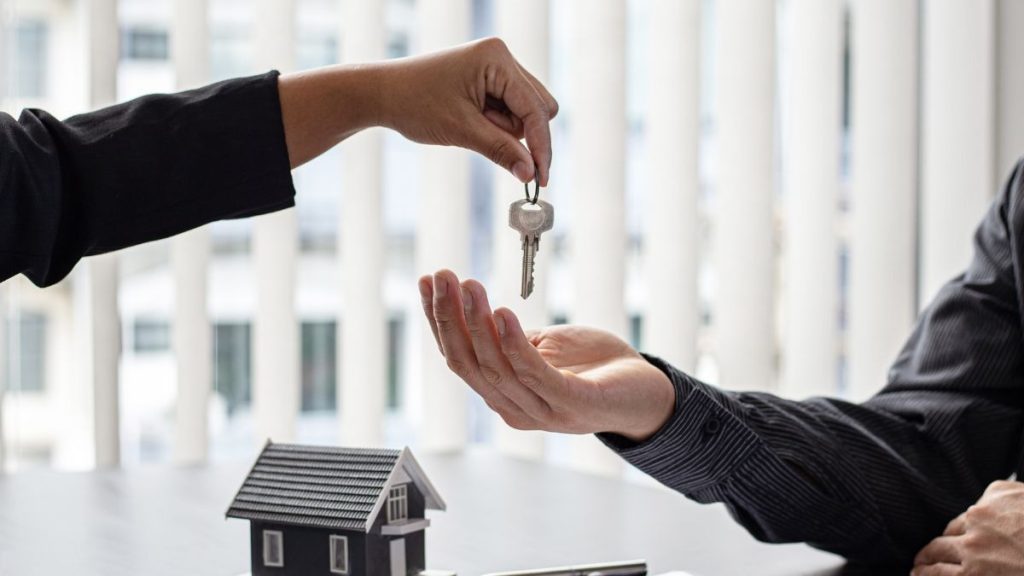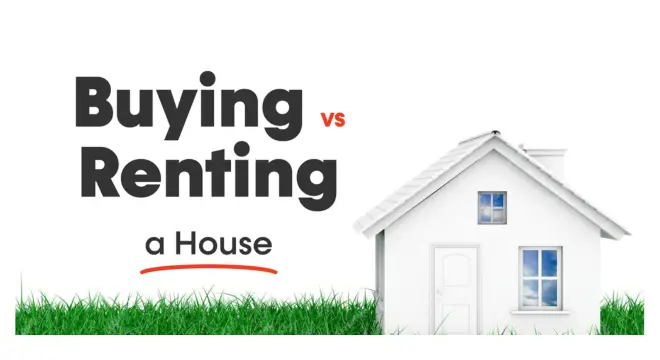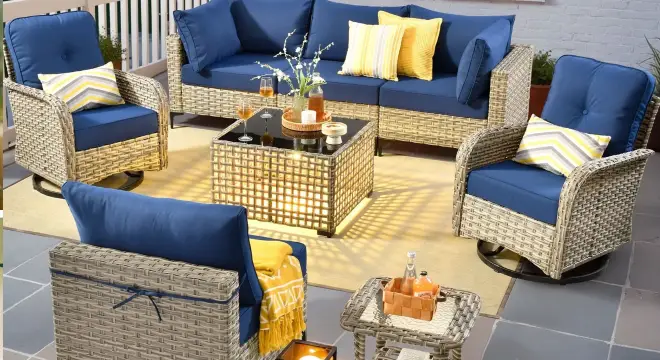New to Renting? What Every First-Time Apartment Renter Needs to Understand
If this is your first time renting an apartment, I get it — it can feel pretty overwhelming. You’re stepping into unknown territory, and there’s so much to figure out: where to start, how much you can afford, what to look for, and how to avoid common pitfalls. Honestly, I’ve seen plenty of first-timers get stuck or stressed because they didn’t know what questions to ask or what to watch out for.
That’s exactly why I put together this guide. Think of it as your step-by-step roadmap to finding, applying for, and moving into your first apartment without losing your mind — or your savings. Along the way, I’ll share practical tips to save you money and avoid surprises that can turn a dream home into a headache.
Before you dive in, remember: renting your first place is a big deal, but with the right plan, you can make it smooth, smart, and even enjoyable. Ready to get started?
Determine Your Budget — How Much Rent Can You Afford?
When I started renting, the first big question was always: “How much rent can I actually afford?” You probably have the same question, right? Here’s what I learned — your rent should ideally be no more than a quarter of your take-home pay. A wealth strategy expert, recommends exactly that. So if you bring home $3,000 a month, your rent shouldn’t cross $750. Sounds strict, but it’s to keep your finances healthy.
There’s another way I measure it — your gross annual salary should be at least 40 times your monthly rent. For example, if you make $40,000 a year, look for apartments around $1,000 per month or less.
One tip I always follow? Aim for apartments cheaper than your max budget. That way, you can build an emergency fund — ideally 3 to 6 months of expenses — to handle surprises like job loss or sudden bills. Realtor even emphasizes this on their first-time renting guide — having some financial cushion gives you peace of mind.
Don’t forget other costs that sneak up on you: security deposits, application fees, moving costs, renters insurance, and furniture. You want to factor these in early so there are no surprises later.
To get a clearer picture of rent versus owning, this article on Should You Sell or Rent Your Home? offers some useful scenarios.
Check and Improve Your Credit Score — Your Key to Rental Approval

Let’s be real — your credit score can make or break your rental application. Most landlords want to see a score above 650. If you don’t know yours, take a moment to check online — it’s usually a small fee or sometimes free.
If your score’s below 650, don’t panic. I’ve helped people get approved by showing they’re responsible in other ways. Here’s what you can do:
- Get a roommate to share the rent. Landlords like knowing there’s more than one person to count on.
- Ask a trusted friend or family member to co-sign. It’s a big ask, so only if they’re comfortable.
- Provide professional or personal references — if you don’t have previous landlords, a boss or mentor can vouch for you.
- Show proof of income like pay stubs or bank statements to prove you can pay rent reliably.
- Offer to pay a few months’ rent upfront or increase your security deposit — that shows commitment.
- And sometimes, writing a heartfelt letter explaining your credit situation and the steps you’re taking to improve it can help landlords trust you more.
Remember, credit isn’t everything — but showing responsibility in these ways boosts your chances.
Define Your Apartment Requirements — Know What Matters Most
You’re not just looking for any apartment, right? You want one that fits your life. So, sit down and make a list of must-haves — this helped me avoid wasting time on places that didn’t really work.
Think about the neighborhood first: Is it safe? Close to your work, schools, or grocery stores? Use sites like AreaVibes or City Data to check crime rates and livability. Keep in mind some areas cost more, so balance safety with your budget.
Next, what amenities are non-negotiable? Maybe you want laundry in-unit, a parking spot, a gym, or air conditioning. Got pets? Look for pet-friendly units or a nearby park.
And don’t forget your lifestyle. For example, if you love cycling, check if there are bike trails nearby. These little things make a big difference in how happy you’ll be at home.
Having this checklist upfront means when you start searching, you’re focused and efficient.
If you’re also thinking about buying your first home, this piece on US First Time Buyers Stall While Rental Market Booms provides great insight.
Use Reputable Rental Websites — Streamlining Your Search
When I first started apartment hunting, I wasted so much time hopping between random sites. Then I found Realtor.com and a few others that let me filter by exactly what I needed — price, neighborhood, amenities, move-in dates, even community features like pools or gyms.
Using these filters is a game-changer. You can quickly narrow down options that fit your budget and lifestyle, so you don’t waste time visiting places that won’t work.
If you want my tip, start with a trusted source because they have detailed listings and reliable info. This way, you get a clear picture of what’s available and can easily compare your favorites side by side.
When hunting for apartments, joining WhatsApp groups and channels where renters share real-time tips and alerts can be a great way to stay ahead of scams and find better deals.
Daily tips for a safer, better home – Click to join now!
Prepare Your Apartment Tour — Questions and Inspection Checklist

Once you’ve shortlisted a few apartments, it’s time for the tour. Don’t just walk in and hope for the best — come prepared with a list of questions. I always ask things like:
- Is parking free or paid?
- Who pays for utilities like water and electricity?
- What amenities are actually available? Sometimes the listing promises a gym, but it’s closed or small.
- Are there restrictions on guests or pets?
- Who do I call for maintenance, and how fast do they respond?
Also, bring an inspection checklist. Test faucets, light switches, locks on windows and doors, internet speed, and air conditioning. I’ve seen renters move in only to find broken appliances or poor internet.
Being thorough on your tour saves headaches later — you’ll know exactly what you’re signing up for.
Applying for the Apartment — Simplify the Process
Now that you’ve found apartments you like, it’s time to apply. I know, the paperwork can be a headache. But here’s a trick: use tools like Avail Renter Profile. It lets you create one application profile that you can share with multiple landlords. This saves you from filling out the same forms again and again.
Make sure you have your documents ready — pay stubs, ID, references, proof of income. The easier you make it for landlords to verify your info, the faster they’ll say yes.
Pro tip: submit applications quickly once you find a good place. The rental market moves fast, especially in popular areas, so don’t wait too long.
Understanding and Signing the Lease — Know What You’re Agreeing To
When your application is approved, you’ll get a lease to sign. This document is your contract, so read it carefully. I can’t stress this enough — look for hidden fees, rules about pets or guests, and what happens when the lease ends.
Leases usually come in three flavors: month-to-month, short-term (3-6 months), and long-term (12+ months). Decide which works best for you.
If you can, get a lawyer or someone knowledgeable to review it. It’ll save you from costly surprises later.
Before signing your lease, it helps to see things from a landlord’s perspective — our Smart Landlord’s Checklist breaks down key rental property terms to know.
Furnishing Your First Apartment — Budget-Friendly Tips
Moving into your first place means furniture — but buying new stuff can wreck your budget. I’ve been there. Instead, try these ideas:
- Ask friends or family if they have furniture they don’t need.
- Check out garage sales and thrift stores — you can find gems for cheap.
- Look for used furniture stores in your area; they often have quality pieces at lower prices.
Remember, you don’t have to buy everything at once. Start with essentials and add as you go.
Renters Insurance — Protect Your Belongings

Renters insurance might sound like an extra expense you don’t need — but trust me, it’s worth it. It covers your personal belongings if there’s theft, fire, or damage.
It also helps if your apartment becomes unlivable temporarily — like if there’s a flood or major repair.
Plus, it can cover liability if someone gets hurt while visiting your place.
Prices are generally low, so getting insurance is a smart way to protect yourself from unexpected losses.
Move-In Preparation — Clean Before You Settle In
Before you start moving boxes, I always recommend a deep clean of your new apartment. It’s easier to do when it’s empty, and it sets a fresh start.
You can DIY if you have time and energy, or hire a cleaning service if you want to save yourself the hassle.
After that, coordinate your move with friends, family, or a moving company to make the day smooth.
Bonus Tips to Make Apartment Hunting Easier
Here are some extra tips I wish I’d known sooner:
- Start your hunt about 60 days before you want to move. That gives you time to tour places and apply.
- Search in the winter if you can — rents tend to be lower because fewer people move then.
- Beware of scams on sites like Craigslist or Facebook Marketplace. Never pay deposits without seeing a place or verifying the landlord.
These small things can save you time, money, and headaches.
Adjusting to Your New Apartment — What to Expect
Moving out on your own is a big change. It might take a few weeks or even months to feel truly at home.
If you’re moving from your parents’ house or a familiar place, it’s normal to feel a little lost or lonely at first.
Give yourself time. Set up your space, meet neighbors if you can, and create routines. Soon, it’ll start feeling like your own little world.
What was the biggest challenge you faced during your first renting experience? Drop a comment below — I’d love to hear your stories.
Final Thoughts — Making Your First Rental Experience Smooth and Smart
Renting your first apartment is a big step, but with the right info and planning, you can turn it into an exciting new chapter rather than a stressful ordeal.
Remember, take your time, stay organized, and don’t hesitate to ask questions. You’ve got this — and soon, you’ll have a place you’re proud to call home.
If you want to dive deeper into rental and real estate topics, be sure to check out our detailed guides and expert tips at Build Like New.
Disclaimer: This guide is for informational purposes only and doesn’t replace professional legal or financial advice. Rental markets vary by location and change over time, so always do your own research. I’m sharing what’s worked for many, but your situation might be unique.


